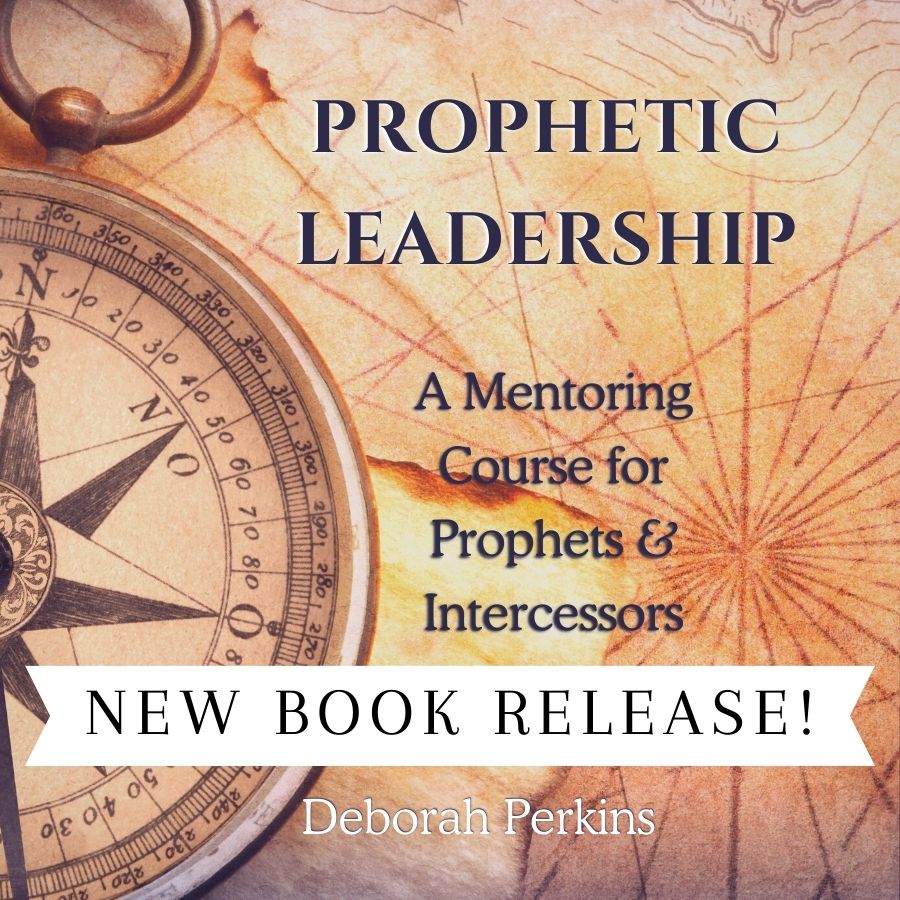|
No one was more skeptical of the supernatural than I. Raised in a world governed by the intellect, I was trained from an early age to focus on learning and self-development while rejecting emotionalism and spiritual “fanaticism.” Truth was limited to what could be discerned through science or the five physical senses alone. In fact, when I finally discovered the Holy Spirit, the very first “label” my family put on me was that of a “fanatic.” Never mind that I hadn’t actually done anything worthy of that label yet; my confession of faith in the third person of the Trinity was enough to worry them! The Doctrine of the Holy SpiritThe Westminster Catechism, which I memorized as a child, plainly states that God is “Three in one.” Apparently, my first church didn’t support authentic belief in the third of the Three! However, when I looked at the answer to question 6 of the Westminster Shorter Catechism: “How many persons are there in the Godhead?” I found something that surprised me: “There are three persons in the Godhead: the Father, the Son, and the Holy Ghost; and these three are one God, the same in substance, equal in power and glory.” It seemed that some of the traditional teaching I received overlooked something – or rather, Someone – who was actually essential to the Christian faith. The question I want to ask you today is: do you consider the Holy Spirit to be the same in substance as God and Christ? Equal in power and glory? Sadly, many in the church do not. "Same in Substance"To believe this essential truth is to admit that the Holy Spirit is not just a Spirit but also a person, as God and Christ are (“same in substance.”) God walked with Adam in the garden, Christ walked with us on earth, yet some traditions fail to acknowledge that the Holy Spirit also walks with us – dwelling within our very persons! (*For a printable list of Scriptures on how to know the Holy Spirit, click here to view or download.) To receive the Holy Spirit as a unique and separate entity is to understand that like God, like Jesus, He is capable of compassion. He can be grieved by our actions. He both hears and sees what we do and say. He has opinions about where we should go and how we should live. Yet even more than that, He is equal to God in power and glory, and so has the right to be obeyed as God! Does this surprise you? Too often I think we imagine that the Holy Spirit is nothing more than a breath of wind, a harmless dove, or a “feel-good” Spirit that shows up as goosebumps on our skin when we imagine we sense His Presence. He reminds us of what Jesus said – but He isn’t really God, He’s just “the Helper.” We fear talking to Him personally, citing scriptures that tell us to pray to the Father in the Name of the Son. But what if He is God? What if the thoughts and suggestions He makes in that still, small voice are actually echoes of the thunderings of heaven? What if, as His equality with God illustrates, talking with the Spirit of God is the same thing? What are we afraid of? A Personal ExperienceAs a young Presbyterian child, I was encouraged to sing in the choir. My family was very musical and appreciated fine arts and culture, so this was considered an acceptable use of my time spiritually. Our elaborate gothic church was built in 1927, and its foundation was laid in the shape of a cross. It seated over a thousand people. It boasted elite and powerful members. But my favorite feature of the church was its stained glass windows. On any given morning, from the choir loft over the nave, you could see the sun rise to a height where rainbow-colored rays from the windows were reflected onto the surrounding walls. It was truly beautiful! I remember one morning in particular, I was singing a hymn with the choir, watching the windows come alive like watercolors in the warm sun – my favorite thing! But suddenly, something in the atmosphere shifted. Not only did I feel a tingling on my skin, as if every hair on my body were standing on edge, but I sensed the presence of Another. It was as though an invisible being had stepped into the choir loft with me, electrifying the air around me. My fellow choristers kept singing, oblivious to the change. But I knew I was encountering a spiritual presence. I just didn’t know how to identify it. Years later, I was introduced to the Holy Spirit as a person who lived inside of me - the gift of God. I began to understand that God, like man, wanted to be known experientially, not just intellectually. And then I remembered that morning in church. With the inward conviction that only the Spirit can give, I heard Him saying, “That was Me!” I knew in an instant that the presence I had felt that day was HIS Presence; I just didn’t have a name for Him yet. I believe a major process of growth in our spiritual lives is learning to discern both the movements and the identity of this third person of the Trinity. We can know about God intellectually, as I did, but not experience Him personally. We can also experience the movements or benefits of the Spirit without attributing them to God. Much of what God does in our world is written off as circumstantial or surprisingly unusual - not powerful as from a Sovereign design. "Equal in Power and Glory"Unlimited by time or space, and able to surprise a child in a choir loft of an otherwise powerless church with His manifest Presence. This is the person of the Holy Spirit. Do you know Him? Can you sense His Presence in your life? Do you consider His movements and instructions to be those of God Himself? Do you agree that everything the Spirit does is for the glory of God? Or does the very idea of a Holy Spirit concern you? I think that for many who come from traditional spiritual backgrounds (Catholic, Lutheran, or Presbyterian like me), interacting with God as Father feels safer than interacting with the Holy Spirit. The Father is in heaven and has far more Bible verses written about Him than the Holy Spirit does! The Holy Spirit – if we admit He is dynamic and real – is closer to home. He’s on our turf, dangerously near. In a way, this is a good thing. His daily presence in us means we cannot relegate God to the top shelf, pulling Him down only in our moments of need. It means we are somehow more accountable, more vulnerable, and uncomfortably subject to aspects of the spiritual dimension. We fear what might happen if we yield to Him as God. Will we lose all semblance of sanity? Will we lose control? If we choose to follow Him as a dynamic trinity, will we, as my family feared, become “fanatics” for Christ? While I admit that it’s a process to get to know the Holy Spirit, I find that the more I allow for the supernatural (call them “fanatical” if you will!) aspects of my faith, the more I understand of God Himself. We cannot understand a spiritual being without the Spirit! Not only that, but our prayer lives become more powerful when the Spirit leads us, since He knows how to lead us in prayer that agrees with the Father. (See Romans 8:26-27.) Our senses must be renewed daily to His Presence as surely as our minds must be renewed to His truths. We need both Logos and Rhema, Word and Spirit, to understand God in His fullness. We need to recognize and honor the Third person of the Trinity to understand the heart and intentions of the First. Above all, as in any relationship, we need time to learn of His character and trustworthiness. Time reveals that the goal of the Spirit is the same as the goal of Christ: to grow us up to maturity in God. To “glorify God and enjoy Him forever.” He comforts us in our afflictions. He reminds us of what Jesus said to us. Everything He does is in line with the Bible – God’s Word! To say that the works of the Holy Spirit have ceased operating (a “cessationist” view) is, in effect, to say that God has also ceased to exist and operate in our world – a foolish view for a Christian! Western traditions tend to downplay or even ignore the supernatural dimension of faith. But if God is not powerful, if He maintains no presence or impact on this earth, why would we worship Him at all? While many in the church shy away from getting to know the Holy Spirit out of fear, ignorance, or intimidation, I pray you will welcome this essential third person of the Godhead. “Religious” people may call you a fanatic. But from the standpoint of a very personal Christian faith, it’s the most reasonable thing you can do.
© Deborah Perkins / www.HisInscriptions.com
Download A Free Printable Gift: "Know The Holy Sprit."Reflect on This:1. Romans 8:6 reads: “The mind governed by the flesh is death, but the mind governed by the Spirit is life and peace.” Yielding to the Holy Spirit is far from fanatical! When the Holy Spirit was released upon the early believers in Acts, He came with both power AND the unique ability to cause untrained men to speak in other languages. Just as God is powerful, wise and omniscient, so the Spirit is both an intelligent and compassionate being, whose goals are to bring peace and wisdom to the mind and the reality of God’s love to even the hardest of hearts. 2. Take a look at the following Scriptures: Acts 1:8; Matthew 12:31-32; John 3:5-8. What do you learn about the person of the Holy Spirit in these passages? (For more detailed scriptures, view or print a free download on the Holy Spirit here.) 3. What were you taught about the Holy Spirit as you learned about the Christian faith? Are those teachings consistent with what the Bible teaches? Are you aware that the Holy Spirit is given to you as a gift at your salvation? (See Acts 2:38.) |
Free Link to the Subscriber Resource Library when you join His Inscriptions!
About
Deborah Perkins Categories
All
Archives
June 2024
AuthorA severe hearing loss from childhood caused Deborah Perkins to develop what she now calls her secret weapon: tuning in to God's voice. A Wellesley College graduate and an award-winning writer, Deborah is now a wife and mother of 3 boys. Deborah has devoted over 25 years to professional and lay Christian ministry in New England and beyond. Her passion is inspiring people to cultivate greater intimacy with God. |



 RSS Feed
RSS Feed






